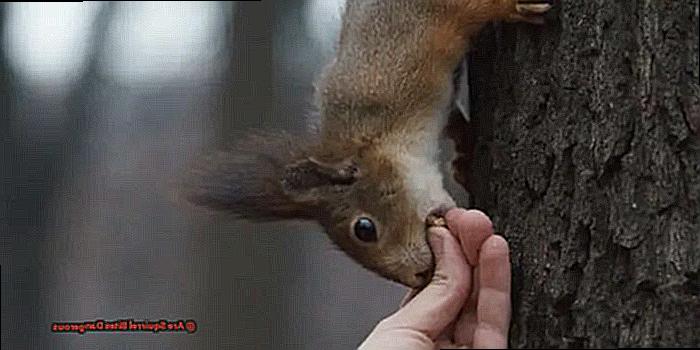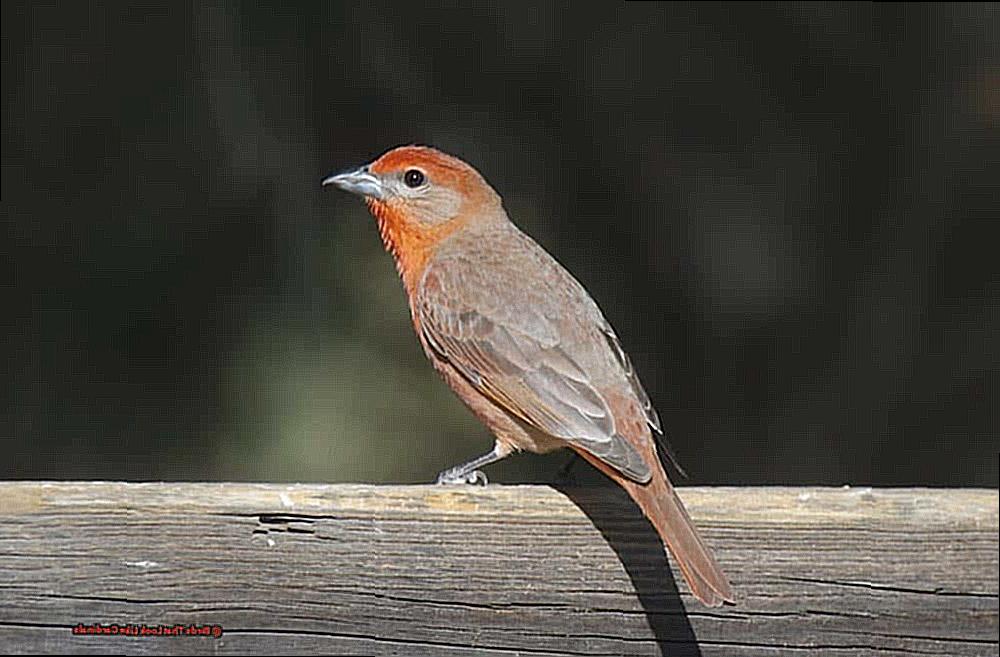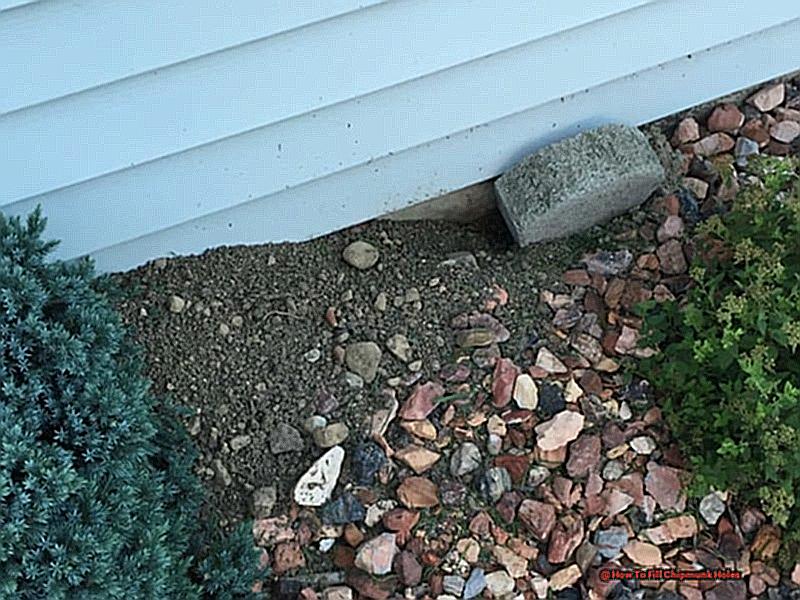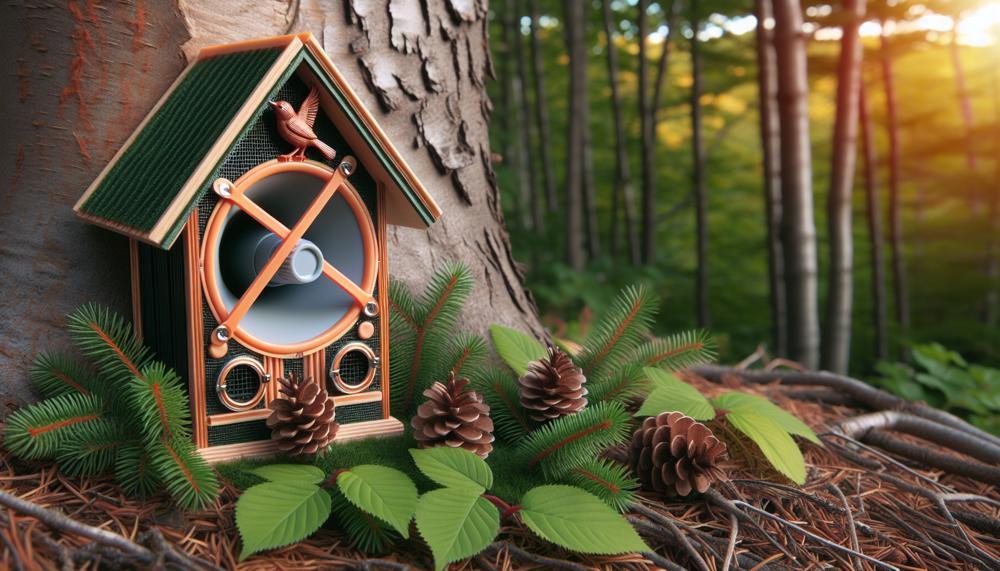Squirrels, with their fluffy tails and playful antics, are often viewed as harmless creatures.
But don’t be fooled by their adorable appearance – these tiny rodents can pack a powerful punch with just one bite. That’s right, squirrel bites can be dangerous.
While they may not be as common as bites from dogs or cats, the consequences can be just as serious. In this blog post, we’ll take a closer look at the potential dangers of squirrel bites and why it’s crucial to take precautions when encountering these seemingly innocent critters.

So grab a snack (just beware of any sneaky squirrels lurking nearby) and join me on this journey to uncover the hidden danger of squirrel bites.
Table of Contents
- 1 Understanding Squirrel Behavior Towards Humans
- 2 Potential Health Risks Associated With Squirrel Bites
- 3 Taking Precautions To Minimize The Risk Of Squirrel Bites
- 4 Treating And Managing Squirrel Bites
- 5 Practical Tips For Coexisting With Squirrels
- 6 Spreading Awareness: Educating Others About Squirrel Bites
- 7 Conclusion
Understanding Squirrel Behavior Towards Humans
Despite their small size, their bites can transmit diseases and cause significant harm. As an expert in squirrel behavior, I want to share effective strategies for preventing dangerous squirrel bites.
First and foremost, it is crucial to understand how squirrels interact with humans. These adorable creatures are naturally timid and tend to avoid human contact. However, with the expansion of urban areas, squirrels have adapted to living near humans. This can lead to conflicts if humans do not respect their space.
One of the main reasons squirrels may bite humans is if they feel threatened or trapped. Being territorial animals, they will protect their space if they sense an invasion. This is especially true for mother squirrels who are defending their young. To prevent this, it is important to give squirrels their space and avoid any actions that may be perceived as a threat.
Feeding behavior is another factor that can contribute to squirrel bites. Squirrels are opportunistic eaters and will scavenge for food in trash cans or bird feeders. If a human is seen as a potential food source, a squirrel may approach them expecting a handout. However, when no food is provided, the squirrel may become irritated and resort to biting.
To prevent this, never feed squirrels by hand. This not only encourages them to approach humans for food but also puts both parties at risk for potential bites. Instead, use natural deterrents like cayenne pepper or predator urine to keep them away from your property.
Properly securing trash cans and bird feeders can also minimize the risk of squirrel bites. These critters are notorious for rummaging through garbage and bird feeders in search of food. By making it difficult for them to access these sources, you can decrease the chances of being bitten.
In conclusion, understanding squirrel behavior towards humans is crucial in preventing dangerous bites.
Potential Health Risks Associated With Squirrel Bites
Squirrels, those adorable and fluffy creatures that we often admire in our backyards, can actually pose a significant health risk through their bites. This may come as a surprise to many homeowners, but the truth is, these seemingly harmless animals can cause infections, diseases, and allergies with their bites. In this article, we will delve into the potential health risks associated with squirrel bites and provide you with valuable tips on how you can protect yourself and your loved ones.
First and foremost, let us address the pressing question – what are the potential health risks of squirrel bites? The answer is not as straightforward as one might think. Squirrel bites can lead to various health concerns, including infections, diseases, and allergies. These risks may sound alarming, but with adequate knowledge and precautions, you can minimize the chances of experiencing them.
One of the primary health risks associated with squirrel bites is infection. Due to their sharp teeth, squirrels can easily break through the skin and transfer bacteria from their mouth into the wound. If not properly cleaned and treated, this can result in an infection. Squirrels are known carriers of bacteria such as Pasteurella multocida. This particular bacterium can cause painful swelling and redness around the bite area. In severe cases, it can even spread to the bloodstream and cause a life-threatening infection.
Another significant concern is the transmission of diseases through squirrel bites. The most common disease associated with squirrel bites is rabies. This viral disease attacks the central nervous system and can be fatal if left untreated. Squirrels may carry the rabies virus and transmit it through their saliva when they bite. Therefore, it is crucial to seek immediate medical attention after being bitten by a squirrel to rule out the possibility of rabies.
Aside from infections and diseases, squirrel bites can also trigger allergic reactions in some individuals.
Taking Precautions To Minimize The Risk Of Squirrel Bites
Squirrels may seem cute and harmless, but they can pose a significant risk when it comes to bites. With the potential for infections, diseases, and allergies, these bushy-tailed creatures should not be underestimated. In this blog post, we will delve into effective precautions to minimize the risk of squirrel bites in your household.
- Keep Squirrels at Bay: The most effective way to prevent a squirrel bite is to keep them out of your house. Ensure that all windows and doors are properly sealed, and any openings or crevices in your home’s exterior are promptly fixed. Squirrels are agile climbers, so trimming tree branches near your house can also aid in keeping them out.
- Eliminate Tempting Food Sources: Squirrels are attracted to food sources, so make sure any bird feeders or open garbage cans are securely sealed. Keep food storage areas clean and store all food in airtight containers. This will discourage squirrels from venturing into your home in search of a meal.
- Maintain a Safe Distance: While it may be appealing to feed or interact with squirrels, it’s best to keep your distance. Squirrels can become aggressive if they feel threatened or trapped, leading to potential bites.
- Wear Protective Gear: If you need to handle a squirrel for any reason, make sure to wear protective gear such as thick gloves and long sleeves. This will greatly reduce the risk of getting bitten or scratched.
- Seek Medical Attention: In the unfortunate event of a squirrel bite, seek medical attention immediately. Squirrel bites can transmit diseases such as rabies and tetanus, and it’s crucial to receive proper treatment as soon as possible.
- Proper Disposal of Deceased Squirrels: If you come across a dead squirrel on your property, do not handle it with bare hands.
Treating And Managing Squirrel Bites
Squirrels are often seen as cute and harmless creatures, but their bites can be quite serious. Whether you come across a wild squirrel in your backyard or accidentally upset a pet squirrel, knowing how to properly handle and treat a squirrel bite is crucial.
Here are the immediate steps you should take if you find yourself with a squirrel bite:
Cleanse the wound with soap and water:
The first and most crucial step after any animal bite is to clean the wound thoroughly. Use mild soap and water to gently wash the area for at least five minutes. This will help remove any dirt, bacteria, or saliva and reduce the risk of infection.
Disinfect the area with either rubbing alcohol or hydrogen peroxide:
After cleaning the wound, use rubbing alcohol or hydrogen peroxide to disinfect it. These antiseptics can help kill any bacteria that may be present. Use a clean cotton ball or pad to apply the solution, covering the entire area.
Protect the wound with a bandage or gauze:
To promote healing and prevent further contamination, cover the wound with a sterile bandage or gauze. This will also discourage you from scratching or picking at the bite, which can lead to infection.
Seek medical attention if necessary:
If the bite is deep, large, or painful, it’s essential to seek medical attention. Squirrel bites can cause serious infections such as tetanus, so it’s crucial to have a healthcare professional evaluate and treat the wound.
Avoid feeding squirrels:
Feeding wild animals, including squirrels, can increase their contact with humans and raise the risk of bites. It’s best to avoid feeding squirrels altogether and instead admire them from afar.
Stay calm and refrain from approaching wild animals:
In case of an encounter with a wild squirrel, remain calm and avoid approaching or provoking the animal.
Practical Tips For Coexisting With Squirrels
The perplexing dilemma of coexisting with squirrels may seem simple enough, but the reality is that these cute and fuzzy creatures can quickly become a nuisance when they invade our homes. While it may be tempting to get rid of them, it’s crucial to take precautions to ensure a safe and humane removal process. Here are some practical tips for releasing a live-trapped squirrel without putting yourself or the squirrel at risk.
Avoid handling squirrels
Let’s start with the most obvious yet essential tip: never attempt to handle squirrels. Not only is it dangerous for you, but it also causes intense stress for the squirrels. These tiny creatures can become aggressive and bite when feeling threatened, potentially transmitting diseases through their saliva. It’s best to leave the handling to the professionals.
Wear protective gear
When releasing a live-trapped squirrel, it’s vital to protect yourself by wearing gloves and long sleeves. Squirrels can carry ticks, fleas, and other parasites that can transmit diseases to humans.
Place the trap on the ground
Once you’ve caught a squirrel in a trap, make sure to place it on the ground before opening the door. This will prevent any injuries to both you and the squirrel.
Allow the squirrel to exit on its own
It may be tempting to rush the release process, but it’s crucial to give the squirrel time to exit the trap on its own. Do not try to force or scare it out as this can cause unnecessary stress and potential injury.
Seek medical attention if bitten
In case of a squirrel bite, seek medical attention immediately. Squirrel bites can transmit diseases such as rabies, tularemia, and Lyme disease through bacteria in their saliva. Prompt treatment can prevent infections and potential complications.
Educate others about squirrel behavior
Understanding squirrel behavior is crucial in preventing bites.
Spreading Awareness: Educating Others About Squirrel Bites
Squirrels, those seemingly harmless creatures we often admire from a distance, can actually pose a threat to humans. As an expert on “Spreading Awareness: Educating Others About Squirrel Bites,” I am here to provide you with crucial information on how to prevent squirrel bites and educate others about their potential dangers.
Understanding the complexity of squirrel bites is essential in preventing them. These seemingly friendly animals carry diseases such as tularemia, Lyme disease, and Rocky Mountain spotted fever. Furthermore, their bites can lead to infections, rabies, and tetanus if not properly treated. It’s important to know that the severity of the bite depends on the individual squirrel and the person’s immune system. Children and individuals with weakened immune systems are especially vulnerable.
Identifying high-risk situations for squirrel bites is also crucial. Squirrels are drawn to residential areas due to food sources, making it vital to properly dispose of garbage and keep trash cans tightly sealed. Feeding squirrels can also put individuals at risk as they become accustomed to humans and may become defensive if they feel threatened. Additionally, squirrels may exhibit heightened aggression during breeding season or when protecting their young. It’s imperative to exercise caution around squirrels in these situations to avoid potential bites.
So, how can we prevent squirrel bites? The best approach is to avoid contact with them altogether. Teach children not to approach or touch squirrels, even if they seem friendly. Maintain a safe distance from squirrels in public parks or other areas where they may be present. If you have a squirrel infestation in your home, seek assistance from a professional pest control service to safely remove them. Do not attempt to trap or handle squirrels yourself, as this increases the risk of being bitten.
Creating awareness about the hazards of squirrel bites is also vital in preventing future incidents. Many people are unaware of the dangers and may not realize the potential harm.
Conclusion
In conclusion, while squirrels may appear harmless and endearing, their bites can pose a real danger. As we have discovered in this blog post, squirrel bites can result in infections, diseases, and allergies. It is crucial to understand squirrel behavior towards humans and take necessary precautions to minimize the risk of being bitten.
By respecting the personal space of squirrels, properly securing trash cans and bird feeders, and refraining from hand-feeding them, we can greatly reduce the likelihood of encountering a bite. In the event of a bite, seeking immediate medical attention and thoroughly cleaning and disinfecting the wound is essential.
As responsible members of our community, it is also important to spread awareness about the potential dangers of squirrel bites. By educating others and taking necessary precautions, we can coexist with these furry creatures without putting ourselves or them in harm’s way. So next time you come across a squirrel in your backyard or at the park, remember to admire them from a safe distance and avoid any actions that may provoke a potentially hazardous situation.





